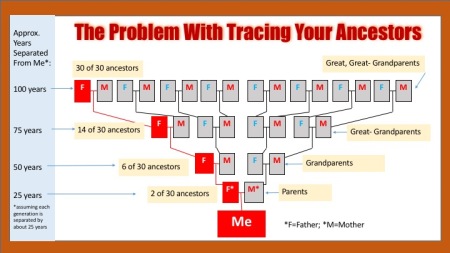We often see leaders as people who take action, and that is certainly part of leadership. But, action in and of itself is not leadership.
Anyone can take action at any time. People often act out of a need to do something, anything. This is just reflexive action, something done without much thought. Reflexive action is done out of frustration. It is done without a solution behind it.
Here, I am struck that this has been a large part of Donald Trump’s approach to how he manages. To be clear here, I do not like Trump, his policies or his approach to running the government or leading this country. However, with that said, as someone who does focus on leadership, I can step away from my feelings and focus on the leadership elements at play here.
In a real crisis or emergency, we all act reflexively, sometimes doing the very first thing that comes into our head, perhaps even the very thing we should not do.
In the case of Donald Trump, people have always acknowledged that he can act impulsively, even impetuously. He responds with his gut feeling. But, that is not leadership. The president has to be the leader 24/7. He cannot be the nation’s id.
There are two situations that highlight how these reflexive actions by Donald Trump shows the lack of a solution behind them. The first was his decision of end the DACA (Deferred Action for Childhood Arrivals) program. The second was the recent Zero Tolerance policy which erupted into bad optics about crying children being held away from their families. I don’t want to focus on the politics of the two situations, but on the process. In both cases, Trump took the action and then tossed the issue over to Congress to solve. He presented no solution beforehand, no outline of what would be acceptable to him as a solution.
On DACA, there was great confusion on what he would accept. On one day, he said one thing, which he later reversed. He created a problem, using the DACA children as a bargaining chip, to force Congress to come up with a solution he could accept. A year later, there is still no solution to the DACA dilemma. Trump offered no solution. He waited for Congress to come offering solutions in the form of proposed laws. Nothing substantial came of it.
On the Zero Tolerance policy, he did something similar. He ordered Attorney General Jeff Sessions to implement the Zero Tolerance policy. By doing so, he wanted to put pressure on Congress come up with a solution to the immigration problem. As of today, there is no solution on the horizon. The proposed legislation, according to all sides, has no chance to pass Congress. And, the Trump White House has offered no detailed legislation or even an outline of what would be acceptable.
Those who support Trump applaud that he takes decisive action. Yes, both were decisive actions. You can see it in many of the things he has done. He ended the administration’s support for health care subsidies. He pulled the US out of the Paris Climate Accords, the Trans-Pacific Partnership and the UN Human Rights Council. In the case of the TPP, no other agreement was presented in its place that would keep the United States plugged into trade with the Pacific nations. Perhaps he is still waiting for those countries to come back with a trade deal, but nothing has really happened so far on that. In the meantime, China has take advantage of the vacuum.
As a leadership example, however, they are empty action. None of those came with solutions attached to them. Perhaps it is part of Trump’s history of how he operates where he takes an action and then waits for someone to solve the problem he creates or for the other party to come up with an acceptable solution. He just transferred that behavior to the Presidency.
While we want and expect action from our leaders, we really need solutions. That is the hard part of leadership, crafting a solution. But, it is a necessary element of leadership.
I learned, from my wife, one principal’s approach to addressing problems. Her principal told her, “I don’t mind you bringing me problems, but I expect you to come with a solution for me to consider. Don’t just being me problems.”
Anyone can take action and create other problems in the process. No real thought is required. But solutions demand hard thought and work. Still, that is what we really need from our leaders.
 The Tri-City Leadership Program is accepting applications for the 2017-2018 program year. The Tri-City Leadership Program builds on more than 20 years of leadership training services in the Tri-City area. More than 300 community leaders have benefited from previous community leadership programs in the Alamo, San Juan and Pharr communities, including some who have gone on to elected positions and other leadership positions. Others learned new skills they were able to apply in their work, community and home environments.
The Tri-City Leadership Program is accepting applications for the 2017-2018 program year. The Tri-City Leadership Program builds on more than 20 years of leadership training services in the Tri-City area. More than 300 community leaders have benefited from previous community leadership programs in the Alamo, San Juan and Pharr communities, including some who have gone on to elected positions and other leadership positions. Others learned new skills they were able to apply in their work, community and home environments. As most people understand, leadership is not a function of titles. It is a function of relationships. Just because you have the title does not automatically make you the leader. You become the leader when you develop a strong sense of trust with those around you to the point that they are willing to follow you.
As most people understand, leadership is not a function of titles. It is a function of relationships. Just because you have the title does not automatically make you the leader. You become the leader when you develop a strong sense of trust with those around you to the point that they are willing to follow you.